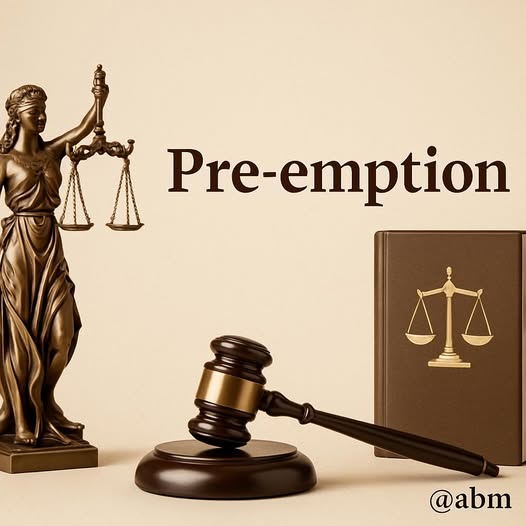
Filing of a Civil Revision in Pre-emption Matters before the High Court Division: A Legal Perspective
Pre-emption under the State Acquisition and Tenancy Act, 1950 (SAT Act) is a unique statutory right, allowing co-sharers or specific categories of adjoining landowners to repurchase transferred land under certain conditions. When a final judgment or appellate decision in such a suit is believed to have been passed illegally or with material irregularity, the aggrieved party may seek redress through Civil Revision before the High Court Division under Section 115 of the Code of Civil Procedure, 1908 (CPC).
This article explores the legal basis, procedural requirements, and strategic considerations for filing a civil revision specifically in pre-emption matters governed by the SAT Act. The pre-emption provisions are codified under Section 96 and Section 96A of the SAT Act, 1950. After the 2006 amendment, the scope of pre-emption has been narrowed significantly.
Civil Revision: Legal Basis
Revisional jurisdiction of the High Court Division is governed by Section 115 CPC. It applies when a subordinate court:
• Exercises jurisdiction illegally or with material irregularity;
• Acts beyond or fails to exercise jurisdiction vested in it.
In pre-emption cases under the SAT Act, revision is typically filed against decisions of the District Judge in appeals under Section 96C.
Grounds for Civil Revision in Pre-emption Cases:
• Jurisdictional Error: The lower court wrongly assumed or refused jurisdiction under Section 96.
• Misapplication of Law: Errors in interpreting co-sharer rights or the effect of the 2006 amendment.
• Procedural Irregularity: Failure to consider the validity of notice under Section 96(4).
• Violation of Limitation: Ignoring the proper starting point for the limitation period (i.e., actual knowledge vs. date of registration).
• Perverse Findings: A decision not based on evidence or contrary to settled principles of pre-emption law.
Limitation for Civil Revision:
As per the Limitation Act, 1908 (Art. 162):
• A Civil Revision must be filed within 90 days from the date of the impugned judgment.
• A condonation of delay petition under Section 5 may be filed with sufficient cause, if needed.
Impact of 2006 Amendment to Section 96 SAT Act:
The 2006 amendment drastically changed the pre-emption landscape:
• Adjacent landowners are no longer eligible to file pre-emption unless they are co-sharers in the tenancy.
• Courts now require strict proof of co-sharership—mere adjacency is insufficient.
• Many civil revisions arise from improper granting or rejecting of pre-emption on this specific ground.
Filing a civil revision in pre-emption cases under the SAT Act is a technical and strategic exercise. It is not a substitute for appeal, but a remedy against grave jurisdictional or legal mistakes. Given the restricted scope of revisional power, only strong, law-based arguments have a chance to succeed before the High Court Division.
